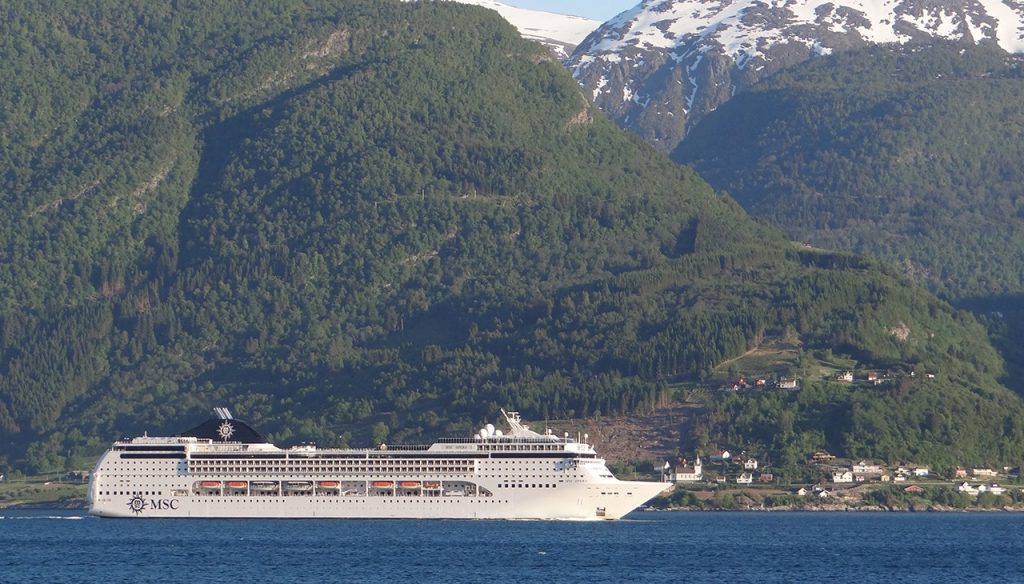A cruise passenger fell overboard while the MSC Euribia ship was sailing through a fjord in Norway. The incident occurred near Flam, a village in southwest Norway during a seven-night cruise that left from Germany. The passenger was rescued by a helicopter and taken to a hospital, with no one else reported missing in the incident. The passenger’s condition was not provided by the HRS Southern Norway rescue service, which conducted the rescue operation. The ship was scheduled to dock in Flam for the day but had to make an unexpected stop more than 50 miles away from the village to turn around and address the situation. The ship is expected to arrive back in Kiel, Germany, as originally planned.
The details of how the passenger fell off the ship have not been disclosed. This is not the first time a passenger has gone overboard from the MSC Euribia, as a similar incident occurred in March when a 23-year-old man messaged his wife that he felt seasick after the ship had left Southamption, England. MSC Cruises reported the incident to the authorities, and police in Southampton conducted an investigation on behalf of the coroner. The cruise line expressed deep sadness at the news and offered condolences to the family of the passenger. In both cases, the privacy of the affected passengers and their families was respected, and additional information was not disclosed.
This incident adds to the ongoing safety concerns surrounding cruise ships and passenger overboard incidents. While cruise ships typically have safety protocols and measures in place to prevent such occurrences, accidents can still happen, sometimes resulting in tragic consequences. The cruise industry has faced scrutiny over its safety practices and response to emergencies, prompting calls for improved safety standards and regulations. Passengers are advised to follow safety instructions and guidelines while on board to minimize the risk of accidents and emergencies, and to be aware of the potential dangers of falling overboard. Cruise companies are urged to prioritize passenger safety and welfare, ensuring that appropriate measures are in place to prevent accidents and respond effectively to emergencies.
The cruise ship industry has faced various challenges and controversies in recent years, including concerns over environmental impact, overcrowding in popular destinations, and the health and safety of passengers and crew. The industry has been criticized for its lack of transparency in reporting incidents and accidents, and for prioritizing profit over safety. Calls for stricter regulations and oversight of cruise ships have been made to ensure the well-being of passengers, crew, and the environment. Despite these challenges, the cruise industry continues to be popular among travelers, offering unique and memorable experiences to explore different destinations and cultures around the world.
The recent incident in Norway highlights the importance of effective emergency response and coordination in the event of accidents or emergencies at sea. The successful rescue operation conducted by the HRS Southern Norway rescue service was a testament to the expertise and readiness of emergency responders in handling maritime incidents. The swift response and cooperation between the cruise ship crew, rescue service, and other relevant authorities contributed to the successful outcome of the rescue mission. It is essential for cruise lines and emergency responders to work together to ensure the safety and well-being of passengers and crew during travel, and to be prepared for any unforeseen emergencies that may arise. By prioritizing safety and practicing proactive emergency preparedness, the cruise industry can enhance its reputation and ensure a safe and enjoyable experience for all travelers.


